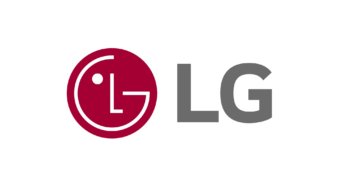International rating agency, Fitch has affirmed Zenith Bank Plc’s Long-term Issuer Default Rating (IDR) at ‘B’ with a stable outlook as well as its National Long-Term Rating at ‘AA-(nga)’ and Viability Rating (VR) at ‘b’.
Fitch, in its rating report released yesterday, said it has withdrawn Zenith’s Support Rating and Support Rating Floor as they are no longer relevant to the agency’s coverage following the publication of its updated Bank Rating Criteria on 12 November 2021.
“In line with the updated criteria, we have assigned a government support rating (GSR) of ‘no support’ (ns). Zenith’s Long-Term IDR is driven by its standalone creditworthiness, as expressed by its VR.
“The VR reflects the constraint of Nigeria’s challenging operating environment and the bank’s high exposure to the Nigerian sovereign (B/Stable). It also reflects the bank’s strong domestic franchise and a solid financial profile by domestic standards. Zenith’s ‘b’ VR is one notch below the ‘b+’ implied VR, reflecting the Operating Environment/Sovereign Rating Constraint.
“Zenith’s National Ratings are driven by its standalone strength. They are at the higher end of the scale, reflecting Zenith’s comparatively strong domestic franchise and financial profile,” it pointed out.
As Nigeria’s second-largest banking group, Fitch said, Zenith holds 15 per cent of domestic banking system assets at end-2021.
“The bank has a strong corporate banking franchise and a retail-focused strategy through digital channels. Revenue diversification is strong, with non-interest income representing 48 per cent of operating income in 2021,” it added.
The rating agency noted that, some of the downside to operating conditions of the bank include rising global risks, Inflation, which stands at 16.8 per cent in April 2022 and “is expected to remain stubbornly high, posing downside risks to real GDP growth forecasts of 3.1 per cent in 2022 and 3.3 per cent in 2023.
“However, downside risks are somewhat mitigated by strong oil prices, which should also underpin growth in non-oil sectors and banks’ asset quality.”
The rating agency noted that Zenith’s single-borrower credit concentration is moderate, “with the 20 largest customer loans representing 68 per cent of Fitch Core Capital (FCC) at end-2021. Oil and gas exposure is material, representing 22 percent of gross loans and 62 per cent of FCC at end-2021. Aggressive loan growth may lead to asset quality weakening as the loan book seasons.
“The Stage 3 loans ratio decreased to 4.2 per cent at end-1Q22 (end-2020: 6.4 per cent) on the back of high loan growth, write-offs and reclassifications. Stage 2 loans (22 per cent of gross loans at end-1Q22) remain high but are concentrated within the oil and gas sector and therefore expected to benefit from high oil prices.
“Our asset quality assessment also considers a substantial amount of non-loan assets, largely comprising government securities and cash reserves at the Central Bank of Nigeria.
“Operating returns on risk-weighted assets have averaged 5.8 per cent over the past four full years. Earnings are supported by a low cost of funding, strong non-interest income and manageable loan impairment charges.
“Profitability has weakened in recent years due to the collapse of fixed income yields and increased cash reserve requirements, but we expect it to improve with rising interest rates and an improving customer deposit structure.
“Zenith’s FCC ratio of 23.5 per cent at end-1Q22 reflects a balance sheet with low leverage. Regulatory capital ratios exhibit material buffers above minimum requirements and Fitch expects Zenith to comfortably comply with impending Basel III capital requirements. Pre-impairment operating profit is strong (10 per cent of average gross loans in 2021), providing a large buffer to absorb loan impairment charges without affecting capital.”





